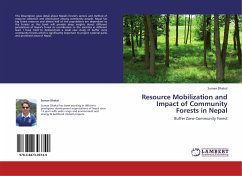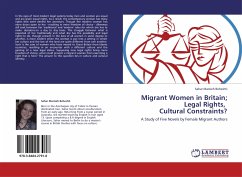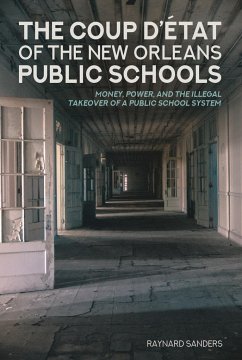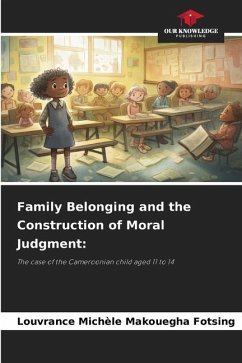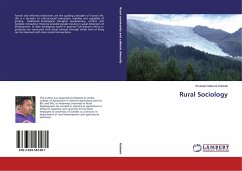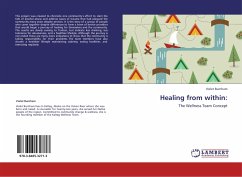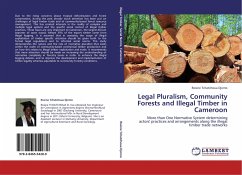
Legal Pluralism, Community Forests and Illegal Timber in Cameroon
More than One Normative System determining actors' practices and arrangements along the illegal timber trade networks
Versandkostenfrei!
Versandfertig in 6-10 Tagen
39,99 €
inkl. MwSt.

PAYBACK Punkte
20 °P sammeln!
Due to the rising concerns about tropical deforestation and forest conservation, during the past decade much attention has been put on challenges of legal timber trade and of community-based forest resource management. This has created interests in the reality of complex and multiple legal systems and the specific social context of illegal timber practices. These issues are very important to Cameroon, the largest African exporter of sawn wood; Almost 35% of the export timber come from illegal logging. It is assumed that in assessing the scope of illegal exploitation of timber specific attentio...
Due to the rising concerns about tropical deforestation and forest conservation, during the past decade much attention has been put on challenges of legal timber trade and of community-based forest resource management. This has created interests in the reality of complex and multiple legal systems and the specific social context of illegal timber practices. These issues are very important to Cameroon, the largest African exporter of sawn wood; Almost 35% of the export timber come from illegal logging. It is assumed that in assessing the scope of illegal exploitation of timber specific attention should be given both to the formal legal regulations and to informal social norms. This study demonstrates the nature and the role of normative pluralism that exists within the realm of community-based commercial timber production and on how this relates to illegal timber exploitation and trade. It recommends that more attention should be made on increasing the understanding of normative complexity in forestry issues in order to enhance the illegal logging debate, and to improve the development and implementation of timber legality schemes adjustable to community forestry conditions.



